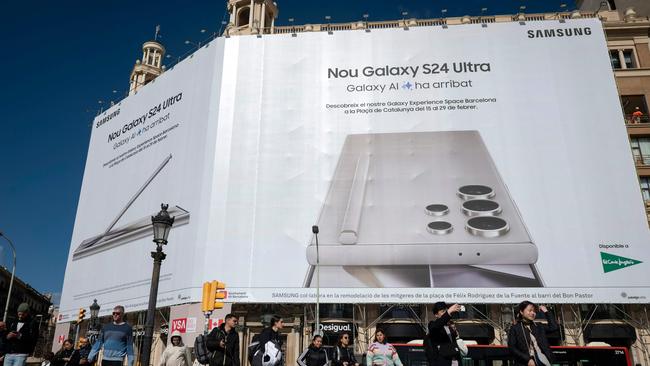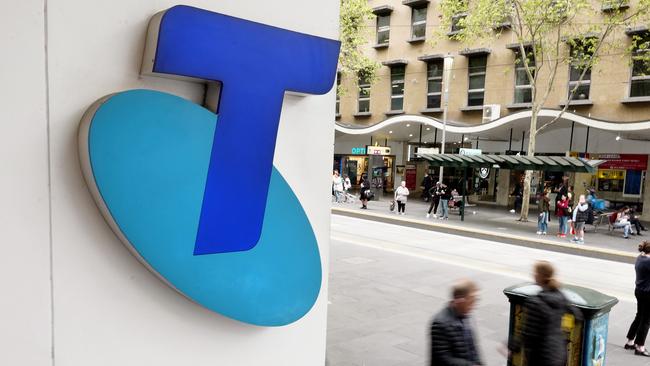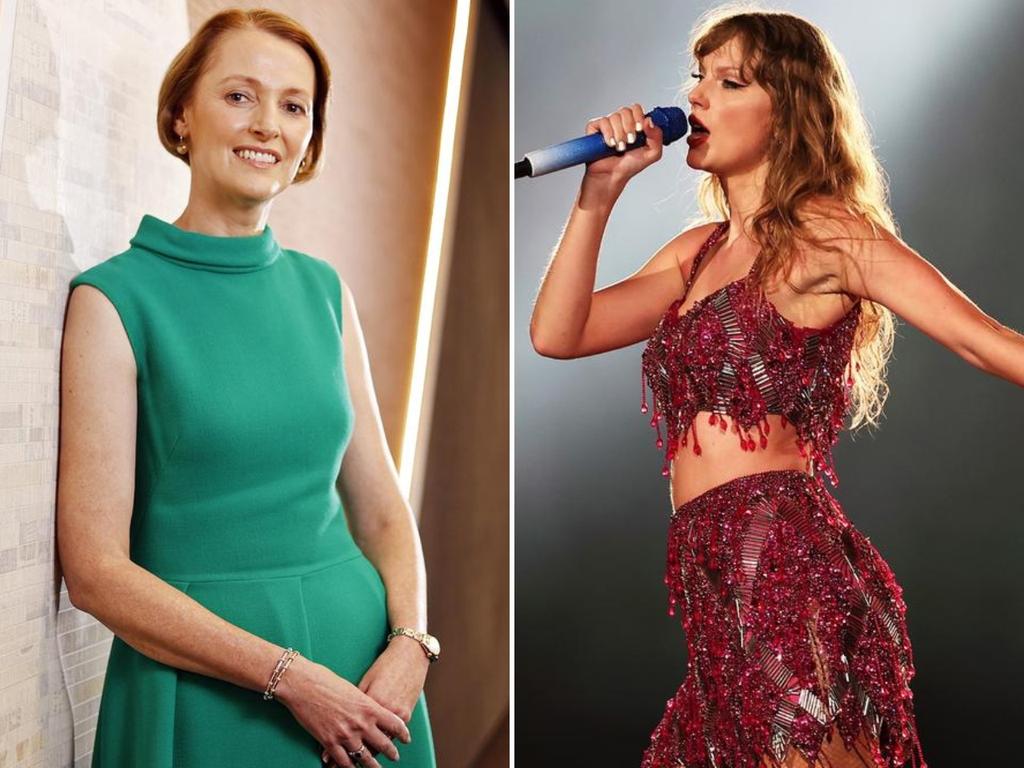This will be AI’s year of ‘big impact’: Telstra CEO Vicki Brady
Investor interest in AI is white-hot. US chip designer Nvidia broke through a $3 trillion valuation last week. Australians companies seek to capitalise.

Business
Don't miss out on the headlines from Business. Followed categories will be added to My News.
Telstra boss Vicki Brady believes this will be the year when the impact of artificial intelligence will cross into the mainstream, with the cutting-edge technology jumping from behind-the-scenes business operations to be incorporated in more frontline roles.
After years of testing and exploring opportunities with generative AI tools, the technology is now being rolled out at scale, and this will make a difference for Telstra’s own employees, Brady says. This will be the experience across most companies. Telstra has already been using the technology in a less obvious way to analyse tens of millions data points in real time to support telco’s mobile network. This involves making sure capacity is available when it is needed as well as finding and fixing faults before customers even notice.
Now Telstra is in the process of incorporating all of its processes and information into an AI engine to make it easier to access for sales staff and vastly speed up connections for customers.
“I do think this year’s a year of big impact,” Brady says. “We will see generative AI at scale, making a difference in our business for our teams, for our customers.”
The Telstra boss was speaking to The Australian from Barcelona, where she is scheduled to appear on a high-powered panel on Monday discussing digitisation inside telcos at the Mobile World Congress, the annual industry conference that attracts the top industry executives.
Brady’s panel, chaired by Julie Sweet, the global boss of consulting major Accenture, is set to explore the digital vision for telcos and how they are preparing their networks for data-hungry new technology including AI, robotics and cloud-based 5G services.
Others in Brady’s session include Deutsche Telekom CEO Tim Hoettges, Mike Friers of broadband and telco player Liberty Global, and Frhiwot Tamru, the CEO of African telco major Ethio Telecom.
The panel will be looking at areas of the best way to regulate AI “and how do we make sure we’re set up around the world to really reap the benefits of this technology and unlock productivity and other key benefits to society”.
The conference comes as investor interest in AI is white-hot. Over the weekend US chip designer Nvidia, which dominates AI infrastructure, briefly broke through the $US2 trillion ($3 trillion) barrier, making it one of the most valuable companies in the world.
It’s a big week for Brady given the conference coincides with the annual meeting of the GSMA, the global standards-setting body of the mobile industry that counts the telco boss as a board member.

Telstra this month posted an 11.5 per cent jump in December-half net profit to $1bn, helped by a 13 per cent jump in mobile earnings and robust returns from infrastructure.
The Telstra boss says telcos are now thinking about the investment in mobile and fibre networks needed to support AI and cloud computing to get the most out of the technology. Simultaneously, there will be a get-together of global regulators and ministers, with Australia’s Communications Minister Michelle Rowland and the chair of Australia’s communications regulator ACMA, Nerida O’Loughlin, also scheduled to attend.
Mobile World Congress often gives a glimpse what is coming down the pipeline for telcos in technology and networks.
While these days it’s less of a platform for big name mobile handset launches, manufacturers like Samsung, Google and Motorola are still there with teases about the technology they are looking to release. Getting an insight is critical for telco bosses to know the demands that will be placed on their networks. Tech giant Apple has sat out of the conference for several years as it keeps its launches to itself.
This year US telco device maker Motorola is expected to show off its bendable technology for wearable devices. Headset concepts from others are also expected to be a big theme.
Telcos are talking with tech companies in the early stages “to make sure the device and the network work hand in glove to deliver great experiences”, Brady says.
Telcos use it to showcase their own developments, and Telstra is expected to announce a King Island project that involves building a high-speed, long-distance broadband link between Victoria and the Bass Strait island that delivers a substantial increase in broadband capacity.
Low earth orbit satellites had their breakout year last year at Mobile World Congress and are expected to remain centre-stage.

This technology is moving closer to offering high-capacity mobile services with minimal latency. For countries like Australia where mobile networks need to cover vast distances with low population, this promises to change the economics of remote coverage.
Telstra last year signed on with US-based Lynk Global to trial the technology, which promises video, voice and text services from a standard handset.
Rival Optus is also pushing ahead in the LEO satellite space. Last year it signed with Elon Musk’s SpaceX to significant extend the telco’s footprint.
Elsewhere, there is work on the backend, with telcos developing a standard known as Open Gateway. This allows machines from different operating networks to talk to each other. It has the potential to significantly change the fight against scammers, because it means Telstra’s network can speak to a bank’s network and block fraudulent or suspect transactions in real time. For others outside Telstra that rely on location-based services, a common network language offers a breakthrough.
More Coverage
Originally published as This will be AI’s year of ‘big impact’: Telstra CEO Vicki Brady





